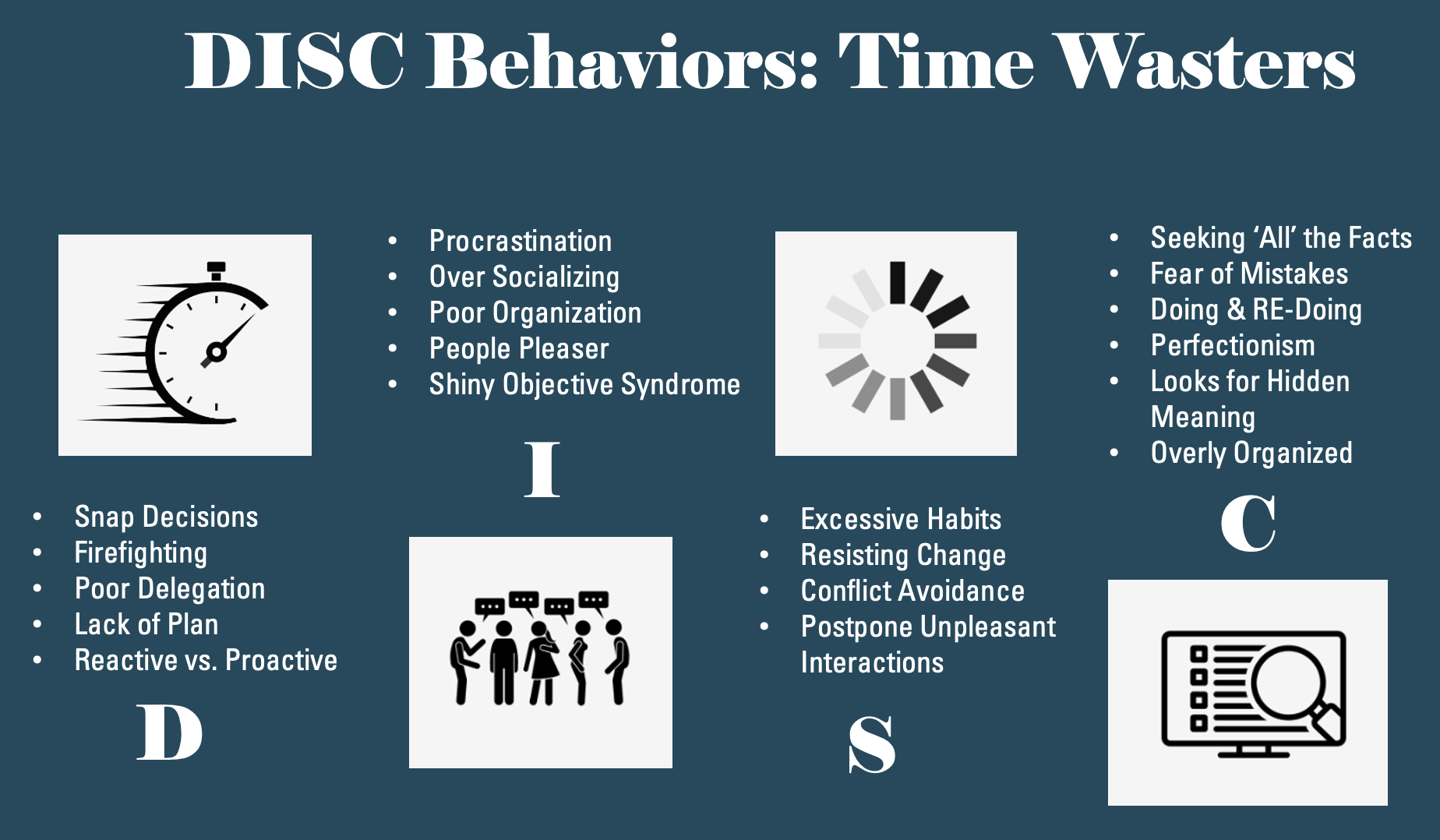Addressing Time Wasters with DISC
Oct 27, 2025When it comes to time management and productivity, the tools and tips are endless. Calendar blocking, “eat the frog,” pomodoro timers...the list goes on. Sometimes those tools feel harder than they should, not because the tool doesn’t work, but because it doesn’t work for you.
That’s where self-awareness comes in. Using the DISC assessment to understand your natural work style not only helps you uncover your personal time wasters, but also explains why that “perfect productivity hack” your coworker swears by might completely drain you.
Let’s take a closer look at common time wasters for each DISC style:
Dominance (D) – The Drivers
-
Jumping into tasks without clear details or direction.
-
Taking on too many urgent priorities and abandoning long-term planning.
-
Interrupting workflow to “fix” things that may not need fixing.
Productivity tip: Slow down just long enough to clarify outcomes and delegate effectively. Not everything needs immediate action.
Influence (I) – The Connectors
-
Getting caught up in conversations and overextending social energy.
-
Saying “yes” to too many requests just to keep things upbeat.
-
Starting big, exciting projects but losing focus before completion.
Productivity tip: Build accountability checkpoints and schedule “focus blocks” where distractions are minimized.
Supportive (S) – The Steady Rock
-
Spending too much time helping others and not enough on personal priorities.
-
Overanalyzing small details before moving forward.
-
Avoiding conflict, which can prolong inefficiencies.
Productivity tip: Practice saying no with kindness, and use clear boundaries to protect your time while still being supportive.
Compliance (C) – The Analysts
-
Over-researching and over-perfecting before taking action.
-
Getting bogged down in rules, processes, or perfection paralysis.
-
Hesitating to make decisions without every piece of data.
Productivity tip: Set a time limit for research or prep, and embrace “done is better than perfect” for tasks that don’t need 100% precision. Concrete due dates will also help you from spiraling down this path.

Time management isn’t just about discipline, t’s about alignment. When teams understand their DISC styles, they see why one person thrives on fast action while another prefers careful planning. They start respecting each other’s strengths instead of getting frustrated by differences. Most importantly, they learn how to work with their natural energy instead of against it. Boosting productivity while preventing burnout.
Let’s bring DISC assessments into your team. With self-awareness, you can transform time management from a struggle into a strategy that actually works: DISC Assessments & Training

